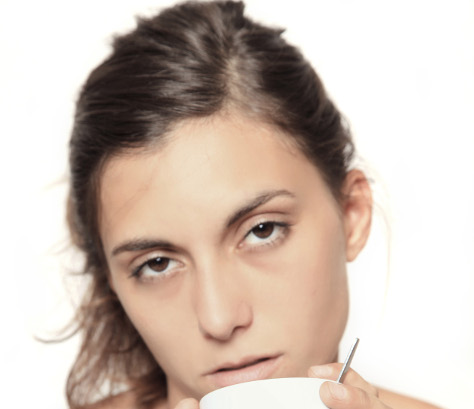What you need to know about hair loss during and after pregnancy
Here's what you need to know about your hair during and after pregnancy

One of the lesser known physical changes as a result of pregnancy is hair loss (or Telogen effluvium) during both pregnancy, and after birth.
How much hair will I loose?
Usually you will lose between 100 and 150 hairs a day in normal circumstances (outside of pregnancy and birth), however after and during pregnancy this number will most likely rise to around 500 hairs a day. One thing worth noting is that this hair loss can often be nonlinear, which is usually the part that brings it to attention or causes potential concern.
This hair loss can become most obvious when washing your hair and physically seeing the fallen hairs in the plug hole. Loss usually starts as soon as the baby is born, and most commonly lasts up until the 6 month mark, however it is usual for the hair loss to go on for longer. The vast majority of cases of hair loss will have subsided before the baby’s first birthday.
Why does hair loss happen?
The reason for this hair loss is actually fairly simple and is essentially a direct result of varying estrogen levels (hugely increased during pregnancy, then decline after birth).
The hairs we have on our head at any given time are mostly in two ‘stages’, these are growing and resting. Normally around 85 to 95 percent of your hair will be growing, with the remaining 5-15 percent resting. After this resting period is over, the hair then falls out (most often when shampooing or brushing it) and is replaced by new growth.
During pregnancy, vastly increased levels of estrogen extend the growing stage of the cycle, meaning there are fewer hairs in the resting stage and less falling out each day. It is often noted that during pregnancy mothers have more luxuriant hair.
However, at one point (mostly after you give birth), your estrogen levels will sharply decrease and as a result a lot more hair follicles will enter the resting stage. This shedding will taper off and your hair will return to pre-pregnancy thickness within a year of birth.
Should I be concerned?
Hair loss after pregnancy is completely natural and very common so there is no need to be concerned, in fact hair loss affects around half of all mums to be and new mums. If, however you are experiencing extreme hair loss, or large patches of hair falling out then it is a good idea to consult your GP for advice. As previously mentioned, this hair loss will eventually subside and normal hair growth and loss will return, however if you are still experiencing hair loss after the one year mark then it is also a good idea to consult your GP.
Tips and advice
There is no way to stop hair loss, but you can experiment with new hairstyles and products to give your hair a fuller, healthier look during this period.
Hair loss can be particularly noticeable for mothers with longer hair, and when loosing these strands of hair it can be much more hassle dealing with longer strands (think clogging up the shower, filling up the brush and tangling in your baby’s fingers). Many mothers take the chance to try out a shorter cut, not only is this practically easier to care for but it can also distract others from noticing a difference due to hair loss and instead direct the attention to the bold new style.
Using a thickening shampoo and condition can enhance the hair and create fuller strands on your head, combining this with volumising spray or mousse products can create increased volume. Also remember to be more gentle with your hair than usual. Try to only use wide tooth combs, avoid brushing when wet and also avoid using intense hair dryers or straighteners. Also be careful and try not to pull back your hair into a tight ponytail or a bun.
Take a look at our guide on skincare during pregnancy for information, tips and things to look out for.
Many mothers also find that keeping up their prenatal vitamins or taking fish oil supplements helps too, although there is no conclusive data on this and it often varies depending on the person. We have a great dedicated section on healthy diets and advice on supplements that we recommend reading before changing diet or beginning supplements.